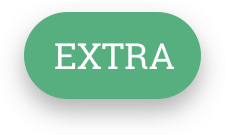
Prizes & Awards
2023 The Case Centre Best-selling Case in the Category 'Ethics and Social Responsibility'
2022 The Case Centre Best-selling Case in the Category 'Ethics and Social Responsibility'
Winner of The Case Centre Awards and Competitions 2022 in the Category 'Ethics and Social Responsibility'
2021 The Case Centre Best-selling Case in the Category 'Ethics and Social Responsibility'
2020 The Case Centre Best-selling Case in the Category 'Ethics and Social Responsibility'
2019 The Case Centre Best-selling Case in the Category 'Ethics and Social Responsibility'
Second Prize in the Corporate Sustainability track of oikos Case Writing Competition 2018
The case is a detailed ‘inside’ account of the ‘dieselgate’ scandal at Volkswagen which revealed how engineers had programmed software that enabled its cars to cheat emissions tests. It explores the origins of internal and external forces that propelled the company to market environmentally sustainable “clean diesel” cars while using engine management software to conceal on-the-road emissions of over 40 times the permitted levels. The scandal - one of the biggest of the decade – illustrates contributing factors that are common to many instances of organizational misconduct: obedience to authority, organizational culture, goal-setting, and corporate governance.
1. To understand how ethical and social responsibility issues arise in business at the level of the individual, the organization, and society.
2. To identify and analyse the individual and organizational factors that give rise to organizational misconduct.
3. To consider how such factors can be mitigated, and the implications for responsible business leadership, organizational design, and corporate governance.
4. To discuss corporate hypocrisy – how an organization with a reputation for engineering excellence could market “clean diesel” cars and programme them to cheat emissions tests.
5. To explore the industry and societal consequences of organizational misconduct by a major player in the automotive industry.
6. To consider the role of rationalisations in justifying misconduct by individuals.
7. To apply the fraud triangle framework to explore risks of organizational misconduct.
8. To discuss effective crisis-management responses.
- Environmental responsibility
- Organizational misconduct
- Vehicle emissions
- Sustainability
- Corporate social responsibility
- Business ethics
- Organizational culture
- Leadership
- Green marketing
- Volkswagen
- Automotive industry
- Pollution
- Fraud triangle
- Crisis management
- Q31718







